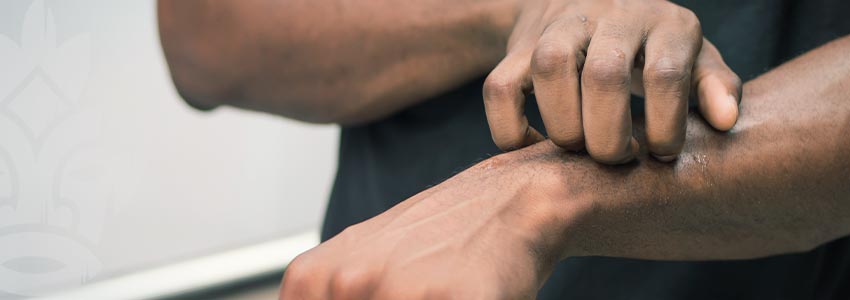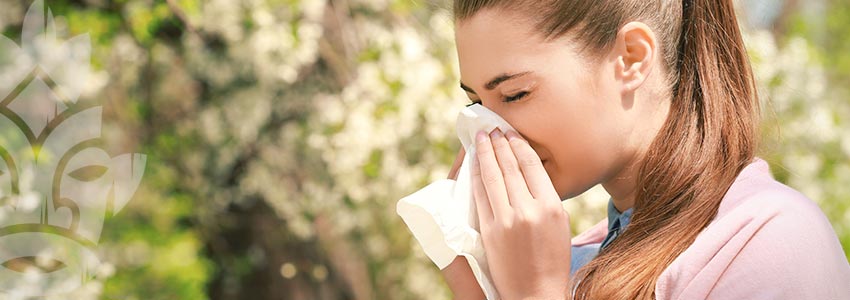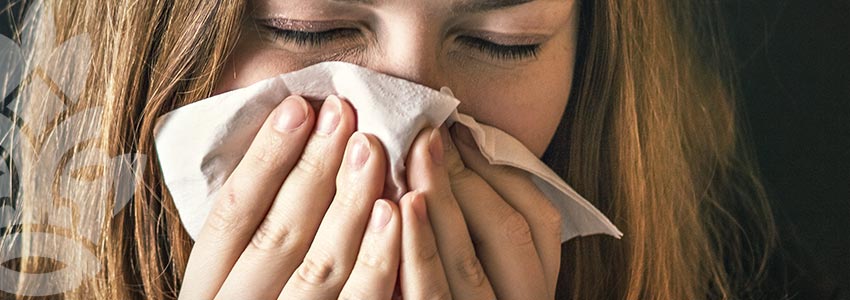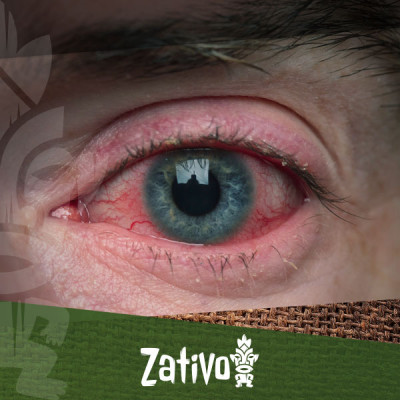Don't have an account?
Register NowYou have to add to cart at least 5 bottles or any program to make checkout.
- BlogCan You Be Allergic To Cannabis?
Can You Be Allergic To Cannabis?
Published: April 10th, 2022
Categories:
Cannabis Info
It might sound heartbreaking, but some people develop allergies to cannabis. Sometimes, smoking the herb is enough to trigger an allergic reaction, but in most severe cases, ingestion of edibles or hemp products is the main culprit. In this article, you'll find some common signs of cannabis allergies and several tips to help you deal with symptoms.
What Causes an Allergic Reaction to Cannabis?
It's unclear exactly what causes an allergic reaction to cannabis. Still, people who have pre-existing allergies are likely more at risk of an allergic reaction, as their immune system is already sensitive to ordinarily harmless substances.
Pre-existing allergies include:
• Pet dander (skin cells)
• Moulds
• Dust mites
• Plants/pollenDust mites
The issue with allergic reactions is that some develop at random but go as you get older, while others are lifelong. While pre-existing allergies could increase your risk, it is just something for you to keep in mind, rather than a clear indication you'll have a problem with cannabis.
An allergic reaction to cannabis can occur from the following:
• Inhaling pollen
• Touching the plant
• Smoking the flowers
• Eating cannabis (including seeds)
The most severe reactions, including reports of anaphylaxis (a potentially life-threatening allergic reaction), tend to occur when people ingest a cannabis or hemp product. These people may not even be using such products to achieve psychoactive effects, but could simply be drinking hemp milk for nutritional purposes.
What Are the Symptoms of a Cannabis Allergy?

A cannabis allergy is no different to any other allergy, and as such, the symptoms will likely be familiar. In most cases, symptoms are mild, so it might take some time before you connect cannabis with your allergic reactions—especially as several symptoms are remarkably similar to the effects of being stoned.
With the basics covered, let's take a closer look at potential symptoms to see if we can help you identify an allergy. Hopefully, though, you're just really, really stoned.
Skin Redness/ Rash
Dermal contact with cannabis may trigger an allergic reaction on your skin. At its most mild, this could simply show up as a little redness at the point of contact. At its most extreme, the contact site can become a full-blown rash or even develop into something like hives.
Though direct contact is the most likely cause of skin reddening, smoking or eating cannabis can also trigger this symptom. With that in mind, don't disregard skin reddening just because you haven't directly touched any cannabis.
Itching
The skin redness mentioned above is usually accompanied by itching. Itching typically occurs on areas of skin that have come into contact with a substance (local reaction). If, on the other hand, it appears after consuming cannabis (smoking, vaping or edibles), then it could start anywhere and everywhere.
Dry Skin

Allergies can cause the skin to dry out on sensitive areas of our body, such as lips and eyelids. That dry skin can then develop into flakey patches, becoming sore to the touch. Allergic reactions can also trigger eczema, an inflammatory skin condition. At its most severe, eczema is incredibly painful, causing dry skin to open into wounds.
To avoid the worst-case scenario, it's worth applying moisturising creams as soon as dryness appears. However, be aware that some creams can aggravate dry skin, so investigate which creams and lotions are best suited to sensitive skin types.
Nausea
Allergies can sometimes cause nausea. This symptom is most common after ingesting a substance you're allergic to. Remember that ingestion includes eating space cakes, CBD oil, or a hemp product. Because of the time it takes for these products to travel through your digestive system, it might not be evident at first that cannabis is the trigger.
Moreover, it can be difficult sometimes to distinguish between nausea and being too high. Suppose you regularly feel nauseous when you smoke or ingest cannabis, even when you don't otherwise feel particularly high. In that case, it may be a sign of an allergy rather than just getting too stoned!
Sore Throat
Allergies often cause sore throats, especially when you're allergic to pollen. This makes the fact the male cannabis plant can spread its pollen several miles particularly tricky to deal with.
The only time you may be able to take meaningful measures is if you breed your own cannabis and find that your throat becomes sore when the males begin to pollinate. In this case, it's up to you to decide whether the results of breeding are worth the discomfort. Also, be aware that both smoking and ingestion of cannabis can also cause a sore throat.
Sneezing and Watering Eyes

Much like a sore throat, sneezing and watery eyes are most likely caused by a reaction to cannabis pollen. In this case, follow the advice from above and see what you can do to mitigate the impact. Unfortunately, if you're reacting to cannabis pollen but not growing it yourself, it can be tough to identify the source because of how far the pollen travels.
How to Treat an Allergic Reaction to Cannabis
First, you have to identify what you're having an allergic reaction to and if that something is cannabis. That being said, for most allergy-related symptoms, the treatments are similar, so it doesn't hurt to try the steps outlined below.
• You can usually treat mild allergic reactions with antihistamines. These are available off the shelf, and most modern options claim to be non-drowsy. Although, it's worth testing this out for yourself before doing anything which may be dangerous (such as driving).
• You can treat more severe reactions with prescription medications, such as strong antihistamines or steroids (hydrocortisone cream).
However, if you identify that cannabis is causing you to suffer allergic reactions to the point you need treatment, your best bet is to cut it out entirely. Of course, you are the final judge of whether the suffering is worth it, but if something which makes you ill is avoidable, then avoidance is usually recommended!
Cannabis Allergies: The Bottom Line

At the end of the day, we still don't fully understand cannabis-specific allergies. While they are generally considered rare and mild, there is a chance that some people react in such an extreme way that it becomes a genuine danger. For the most part, though, symptoms and irritation appear modest.
If you find yourself experiencing allergy symptoms, then seek medical advice to help you correctly identify and treat the cause. Of course, if you encounter a severe allergic reaction to cannabis, the best approach is to stay away!





